Today, at its federal party conference in Berlin, the CDU is adopting the fourth basic program in its history – after 1978, 1994 and 2007. In it, the Union makes a very fundamental commitment to Europe: the two-page chapter on Europe begins with the sentence: “We are the German European party.” The Union is prepared to hand further national competencies to Europe. However, the “core identity of our German constitution” must be strengthened, it says. For example, by strengthening the national constitutional courts within the European Association of Constitutional Courts.
The CDU rejects the formation of a European federal state: “We see the EU as a strong community of sovereign nation states with supranational characteristics.” The Commission should be significantly reduced in size. The CDU also insists that taking on debt after the pandemic remains a one-off affair: “We reject any further development of the one-off recovery fund into a transfer union.”
Further references to the EU can be found in the “Humanity and Order” chapter. The border protection agency Frontex should be expanded into a genuine border police force and coast guard with sovereign functions. In terms of asylum policy, the Union is in favor of outsourcing procedures to safe third countries. If applicants are recognized, the third country should also grant them protection. Furthermore, the Union is in favor of accepting contingents of people in need of protection for humanitarian reasons.
Have a nice day!

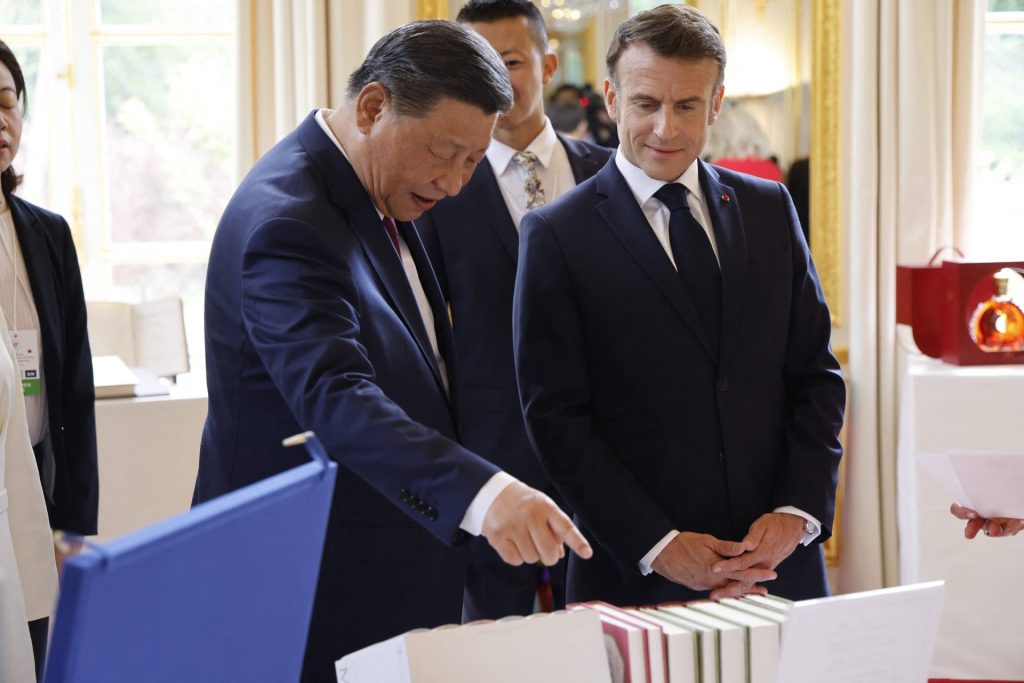
During Xi Jinping’s visit to Paris on Monday, French President Emmanuel Macron attempted to achieve harmony in order to win China’s president over for a possible mediation in the Ukraine war. With some success, at least. In addition to various economic agreements in aviation and battery production, Xi at least pledged his support for Macron’s wish for a ceasefire during the Olympic Games from 26 July to 11 August in Paris. If the weapons were actually to be laid down during the Games, it would be a great success for Macron. However, Putin is unlikely to go along with this.
While Macron cajoled the Chinese President in Paris and praised “the commitment of the Chinese authorities to refrain from selling any weapons or aid to Moscow and to strictly control the export of dual-use goods,” EU Commission President Ursula von der Leyen chose a very tough tone. At the trilateral meeting at midday, she emphasized to the Chinese President that too many Chinese dual-use goods were still being discovered on Ukrainian battlefields. As this is an existential issue for Ukraine and Europe, “this does affect the EU-China relations.”
Another topic was Chinese overcapacity. “Chinese subsidized products (…) such as the electric vehicles or, for example, steel are flooding the European market,” von der Leyen said. The world “cannot absorb” China’s production growth. That is why she “encouraged” the Chinese government to tackle this overcapacity. “We will defend our companies; we will defend our economies,” she said. Europe would not hesitate to make “tough decisions needed to protect its economy and its security.”
After all, French volume manufacturers such as Renault and Stellantis, in particular, suffer from the offensive by Chinese manufacturers, who have entered the French market with aggressive prices. The EU Commission is expected to decide by mid-July on imposing anti-subsidy duties on EVs imported from China. The French government has reportedly been repeatedly pushing for this.
Germany’s premium manufacturers, on the other hand, reject such anti-subsidy tariffs. On the one hand, they could be affected themselves, as Mercedes, VW and BMW also manufacture EVs in China. On the other hand, they fear Chinese retaliation against combustion vehicles sold by German manufacturers in China. The EU already imposes a ten percent import duty on Chinese EVs.
Macron and von der Leyen wanted to influence Xi to do more to stop the war in Ukraine. However, Xi’s response was sobering. During the meeting, he repeatedly stated that “China is not at the origin of this crisis, nor is it a participant.” In a guest commentary for Le Figaro on Monday, Xi had already pointed out that he had already insisted “that nuclear weapons should not be used.” And that he is fully aware that the war in Ukraine is causing upheaval in Europe.
While the Chinese president likes to pretend that his country is neutral between Russia and the West, China, in fact, supports its Russian ally. “We oppose using the Ukraine crisis to cast blame, smear a third country and incite a new Cold War,” Xi said in Paris on Monday.
Gesine Weber, Visiting Scholar at the Saltzman Institute of War and Peace Studies in New York, does not have high hopes for any Chinese mediation announcements anyway. “China likes to present itself as a responsible global player,” she says. This is in line with Chinese foreign policy and is “by no means something you should expect a major initiative from.”
“He doesn’t have the capacity to mediate because China is not neutral,” says Merics analyst Abigaël Vasselier. He would first have to recognize that it was a war in the first place. “He’s still talking about a crisis,” says Vasselier. China is helping Russia economically, helping Putin out of diplomatic isolation, and “making a difference on the battlefield in Ukraine.”
Fittingly, Russian President Vladimir Putin plans to travel to China on 15 and 16 May. It will be his first trip abroad after his inauguration this Tuesday.
Macron would actually have preferred to display a signal of unity with German Chancellor Olaf Scholz and von der Leyen. However, Scholz preferred to attend appointments in the Baltic States, even though Macron had tried to persuade the Federal Chancellor to attend the meeting at a joint dinner in Paris on Thursday. Scholz had already met the Chinese President during his trip to China in mid-April anyway.
“I think France wants to show that the French voice is also a European voice,” says Vasselier. That is why von der Leyen was also in Paris. ‘The fact that Scholz had a preparatory meeting with Macron is excellent, because it makes it possible to coordinate the messages that you want to send.’ She considers it problematic that the German Chancellor did not “Europeanize” his China visit by not including ministers from other EU countries or members of the EU Commission.
Macron would have gladly accompanied Scholz on his visit to Beijing in November 2022. Instead, the French president traveled with von der Leyen in April 2023 and turned Scholz and the United States against him for saying that Europeans should not become “vassals” of the USA. In his second Sorbonne speech in late April, Macron repeated his statement – with an almost identical choice of words.
Xi has cleverly chosen the dates for his talks. At the meeting with Macron, the two presidents celebrated the 60th anniversary of Franco-Chinese relations; during his visit to Serbia on Tuesday, Xi wants to highlight the double standards of the West 25 years after the NATO bombing of the Chinese embassy in Belgrade. Before that, he will dine with Macron in the Pyrenees, where Macron’s grandmother lived.
Last summer, the Hamburg-based food tech start-up BLUU Seafood had good news to report: The company was seeking market approval for fish sticks and fish balls made from cell cultures. The catch: the German company has only applied for approval in the USA and Singapore, with the EU to follow later.
Similar cases occur time and again. While other regions of the world are progressing with the approval of cell meat and co., “European companies are submitting applications outside of Europe,” according to a report by the think tank EIT Food from 2023, which is based on a survey of manufacturers of alternative proteins. The USA and Singapore have approved products made from cell-based meat, while the EU has not yet received any applications, as confirmed by the European Commission.
The approval process for the European market is regulated in the EU Novel Foods Regulation and is considered to be particularly strict. Covered are products that were not available as food on the European market before May 1997. Because health protection is a priority, the EU has “food safety regulations that are among the strictest in the world,” emphasizes a Commission spokesperson.
Do strict standards put companies off? It is not that simple, says Ivo Rzegotta from the Good Food Institute, which campaigns for the spread of alternative protein sources. In principle, the majority of companies back the regulation. The problem lies more in the practical implementation, EIT Food also emphasizes.
It looks like this: In the first phase, the EU Food Safety Authority (EFSA) examines the product safety documentation and assesses the risk posed by the novel food. Based on this, the EU Commission and member states decide on approval in the second stage. According to the EIT survey, companies complain about delays and uncertainty factors in both phases.
The first point of criticism: The EFSA review is too lengthy and difficult to navigate. Although the authority has a time limit of nine months, the countdown is stopped when documents are requested. “There are inefficiencies in the process that could be accelerated without lowering safety standards,” says Rzegotta. This applies, for example, to the way queries to companies are structured and the processing of subsequently submitted documents.
In addition, the companies surveyed by EIT criticize the lack of opportunities for companies to obtain advice in advance on the sometimes complex tests that EFSA expects. Upon request, the EU Commission and EFSA emphasize that they are already working on this. For example, through a more detailed guideline that EFSA intends to present shortly. The authority is also organizing meetings and information events, striving for efficiency and clearly communicating expectations in advance, says Wolfgang Gelbmann, Senior Scientific Officer at EFSA. “EFSA has recognized the problem and is working on it,” says Rzegotta.
The second point of criticism appears to be more difficult to resolve. This concerns the second phase, in which the Commission and EU countries must weigh the risk as “risk managers.” A qualified majority of member states is required for market approval. This allows a relatively small group to block approvals – a real risk when it comes to polarizing topics such as cell meat, says Rzegotta.
There is also no time limit here. Even without the necessary so-called blocking minority, individual countries could delay the process. “This creates additional uncertainty, which deters companies,” he explains. EIT Foods demands: In the approval process, “consumer protection and food safety must take precedence over all other considerations.” Politicization must be avoided.
Current examples show just how politically sensitive novel foods can be: In November, the Italian government publicly banned lab-grown meat – although the ban is likely to violate European law. In January, the country joined France and Austria in demanding stricter rules for approval. And other novel foods are also causing a stir: after the EU approved several ingredients made from insects in 2023, conspiracy theories spread online, which were also fueled by politicians in EU countries.
While the entire process is designed to take 18 months at best, experience shows that it can take two to three years, sometimes more, before approval is granted, even for “less controversial foods,” says Rzegotta. A problem for start-ups in particular. This is because they “usually use venture capital and have to offer their investors a perspective – this is difficult in such a long process with a lot of uncertainty.”
It fits the bill that the only cell meat company that has so far announced preparation for an application in the EU is not a start-up: The Cultivated B started preliminary consultations with EFSA last year. The application for approval has not yet been submitted but could follow this year. The company is a subsidiary of the food group Infamily Foods, which recently expanded its product range from meat products to plant-based substitutes.
According to Rzegotta, large corporations tend to have the necessary staying power for the EU approval process. The good news is that it could be worth it: “There are companies that say: we are deliberately registering our product in the EU because it is the gold standard for the rest of the world,” says Rzegotta. The EU Commission also emphasizes this: the Novel Foods Regulation is a “market opener for exports to many third countries.”
May 8, 2024; 2-3 p.m., online
FSR, Discussion Hydrogen Sales & Purchase Agreement: Challenges Contract Standardization
The Florence School of Regulation (FSR) presents some results of the research & development conducted by the Hydrogen Task Force of the Association of International Energy Negotiators (AIEN). INFO & REGISTRATION
May 8, 2024; 4:30-6 p.m.
DGAP, Discussion Ukraine Between Western War Fatigue and Russia’s Presidential Election
The German Council on Foreign Relations (DGAP) assesses how Putin’s reelection will affect the war against Ukraine, whether the West is leaving Ukraine in the lurch, and if an attack on a NATO member has become more likely. INFO & REGISTRATION
Europe is not yet technologically obsolete – and it must strategically utilize its remaining strengths right now. This is the key message of a new report by the Digital Power China (DPC) research network in cooperation with the German Council on Foreign Relations (DGAP), which is to be presented this Tuesday. The authors stress the importance of using Europe’s technological capabilities as a political lever.
In comparison, decoupling from China would not make strategic sense as the EU would then lose negotiating leverage. Instead, it could be an effective de-risking instrument to serve the Chinese market without giving up its own technological expertise. This would allow Europe to withhold products or services from China if necessary. The report uses the term “strategic entanglement” here.
Strong EU technologies include lithography equipment for semiconductor production, medical technology such as computer tomographs, and modern materials such as specialized metals. Not all sectors where EU companies are strong can immediately be leveraged; their products can often be easily replaced. In other cases, however, the technical strengths stem from excellent basic research or the existence of numerous specialized suppliers whose services cannot be copied.
Digital Power China (DPC) is a loose research network. In addition to DGAP, it also includes the International Institute for Strategic Studies in London (IISS), the French Institute of International Relations (ifri) in Paris, the China Macro Group (Switzerland) and the Royal Institute of Technology in Stockholm. fin
Five weeks before the European elections, lead candidate Valérie Hayer presented the Renaissance program. It contains 48 proposals designed to enable the European Union to tackle “three major risks“:
The proposals were inspired by the two speeches given by President Emmanuel Macron in 2017 and recently at the Sorbonne University, said Clément Beaune, one of the spokespersons for Renaissance, the French section of the European Renew Group.
Hayer picked up on the term “Powerful Europe” developed by Macron. We must overcome our dependence on Russian energy supplies or the “American protective shield” – especially if Donald Trump returns to the White House. It was also important to overcome industrial dependence on China and India.
Renaissance is proposing investments of €100 billion to boost industrial production and finance a European defense fund. The money should come from public and private sources and also support the purchase of defense equipment. “Made in Europe” should have priority.
The European Investment Bank (EIB) should also take over the financing of defense equipment, which it currently does not do. Renaissance is also calling for each member state to spend two percent of its gross domestic product on defense by 2025 and three percent by 2030.
For the environment and economy, Renaissance is aiming for a “Plan Europe 2030” for the energy, transport, digital, health and space sectors. France’s presidential party is calling for €1 trillion from public and private funds to “complement” the Green Deal.
For Renaissance, this increased investment requirement also means that the voting rules in the Council will have to be changed. The principle of qualified majority voting is to be extended to tax issues. Currently, unanimity applies here. cst
With a ministerial letter to EU Environment Commissioner Virginijus Sinkevičius, Germany and other member states have emphasized their demand to create the necessary basis for the EU Deforestation Regulation to enter into force. The background to the German initiative is delays by the EU Commission in the digital information system and the so-called country benchmarking – a list that assigns each country a certain risk level for deforestation. Both Germany and the co-signatories of the letter – Bulgaria, Estonia, Ireland, Luxembourg, the Netherlands, Slovenia, Spain and Hungary – see these as key prerequisites for the implementation of the regulation.
Federal Agriculture Minister Cem Özdemir is therefore appealing to the EU Commission to step up the pace on these issues. “Without their country benchmarking, small and micro forest owners and our administration will face a disproportionate amount of bureaucracy from 2025. We must prevent this,” demands Özdemir. Because without benchmarking, all countries will automatically be classified as a standard risk – including Germany. For Özdemir, it is therefore clear: “If the Commission cannot get its act together, then a shift is needed here so that the Commission can do its job.“
In the meantime, the EU Commission is not revealing how far its work on developing the benchmarking has progressed. However, EU Agriculture Commissioner Janusz Wojciechowski also spoke out in favor of postponing the entry into force of the regulation by one year at the EU Agriculture Council last week. However, unlike Environment Commissioner Sinkevičius, he is not directly responsible for the Deforestation Regulation. Until now, the Commission had ruled out postponing the regulation. However, according to a Commission spokesperson, it intends to respond to the letter from Germany and the other member states shortly.
However, a longer-term postponement of the regulation for deforestation-free supply chains, as recently called for by Austria given the associated bureaucratic burden, can hardly be expected. Environment Commissioner Sinkevičius’s response to an Austrian MEP’s question states that the deforestation regulation does not fall within the area for which the Commission has announced short-term bureaucratic simplifications. heu
The EU Commission has completed its analysis of the rule of law in Poland. It concludes that “there is no longer a clear risk of a serious breach of the rule of law in Poland within the meaning of Article 7(1) of the Treaty on European Union,” the Commission announced on Monday. The Commission has therefore informed the Council and the European Parliament to close the rule of law procedure against Poland, which has been ongoing for six years.
This opens a new chapter for the EU member state, wrote Commission President Ursula von der Leyen in a post on X. Poland had adopted a series of measures to address concerns regarding the independence of the judiciary, the EU explained the move. For example, the country now recognizes the primacy of EU law and has promised to implement judgments of the Court of Justice of the European Union and the European Court of Human Rights.
The change of course was made possible by the change of government in Warsaw last year. The new Prime Minister Donald Tusk, who was President of the European Council in Brussels for many years, had promised to return Poland to an EU-friendly path and restore the independence of the judiciary.
The previous government under the national conservative PiS party had initiated a far-reaching restructuring of the judiciary. Critics saw this as damaging democracy and warned of political influence on the courts. The EU Commission initiated the proceedings, which will now be discontinued.
Polish Justice Minister Adam Bodnar welcomed the decision in Brussels. He thanked von der Leyen for her cooperation and support. Poland is committed to common European values and will consistently restore the rule of law, he said. rtr
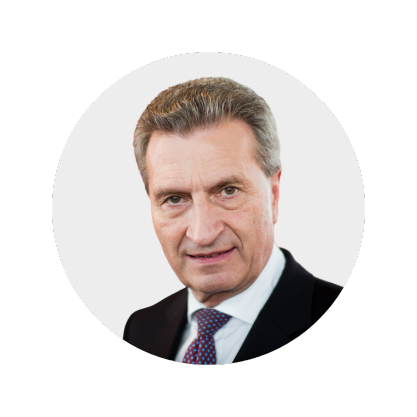
Günther H. Oettinger – Founder Oettinger Consulting
For nine years, he was the “German Commissioner” in the Barroso and Juncker Commission responsible for energy, digital, budget and personnel. He left politics in 2019 and founded the consulting firm Oettinger Consulting with his partner. Even during the prescribed cooling-off period, he had a number of employment relationships approved. At the age of 70, Oettinger is still highly active on supervisory boards, advisory boards and boards of trustees, as well as advising companies.

Reinhard Hönighaus – Partner FGS Global
The partner at the major strategy consultancy FGS Global commutes a lot between Berlin and Brussels. As a former spokesman for the EU Commission in Berlin and Brussels correspondent for the Financial Times Deutschland, he is very familiar with the workings of the EU apparatus.

Arne Lietz – Director Brunswick
The Director of Brunswick in Berlin advises companies on how to deal with climate and sustainability regulations such as the Supply Chain Act. These are topics that Lietz previously also dealt with as an SPD MEP. He was responsible for defense policy and development from 2014 to 2019 at the European Parliament.

Sabine Seeger-Regling – Senior Advisor HimmelsSchreiber
As a journalist, she was a correspondent in Rome, Singapore and Brussels. From this time, she knows her way around EU issues, financial policy and national politics in Italy and Germany. Thanks to her extensive personal contacts, she is still one of the best-informed people in Brussels’ European quarter. Three years ago, she switched sides and has been a Senior Advisor at HimmelsSchreiber ever since.
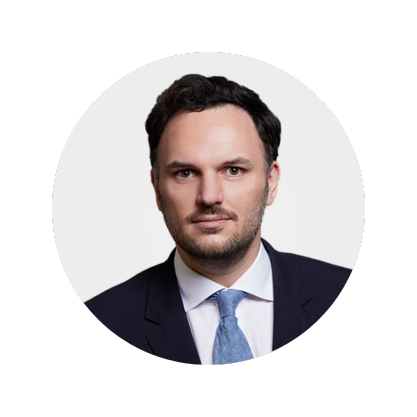
Hubertus Droste – Director EUTOP
Droste heads the Brussels office of the lobby agency EUTOP. The lawyer previously represented the German government in various Council working groups and therefore knows these otherwise less transparent bodies inside out. He wrote even his doctoral thesis on the subject of “Representing interests in the EU.”

Susan Schneider – Director FGS Global
In the Brussels office of FGS Global, the Director is primarily responsible for sustainability and chemicals regulation. Trained in the USA, she previously worked as a staff member in the European Parliament, as office manager for FDP MEP Wolf Klinz.
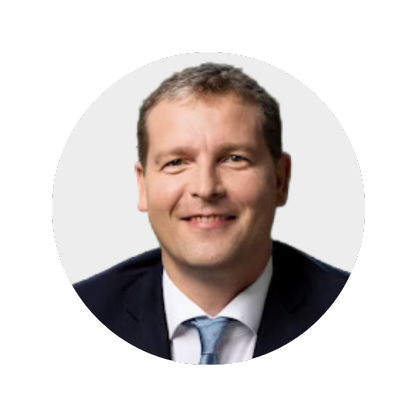
Jan Hromadko – Managing Director Teneo
After several years at the Wall Street Journal in Frankfurt, the former journalist switched to consulting. After working for Charles Barker and Brunswick, he is now Managing Director at Teneo in Brussels, with expertise in the transport sector and merger control, among others.
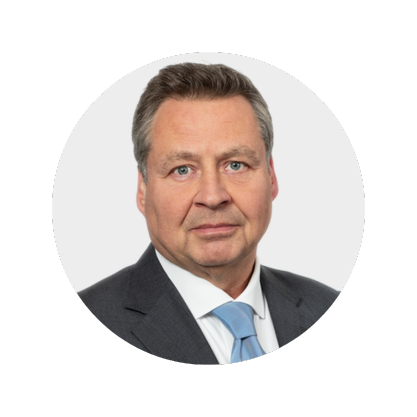
Ulrich Soltész – Partner Gleiss Lutz
The partner at the law firm Gleiss Lutz in Brussels is one of the leading experts in European state aid law. He is also active in various networks such as the International Competition Networks (ICN) and the Berlin Discussion Group on European State Aid Law.

Frank Montag – Partner Freshfields
The experienced partner for competition law at Freshfields in Brussels is a man for the big cases: He has advised on numerous company mergers, including highly political ones such as the merger between Siemens and Alstom, which was ultimately stopped.

Jens Peter Schmidt – Head of Noerr’s Brussels office
The antitrust law expert is head of the Brussels office of the commercial law firm Noerr. His more than 25 years of experience focus on merger control, the assessment of subsidies from third countries and regulatory issues relating to the digital economy – such as the Digital Markets Act.
According to information from Table.Briefings, Nina Wunderlich is taking over the management of sub-department E B “EU Economic Policy, Internal Market, Bilateral Relations, EU Twinning” at the Federal Ministry of Economics. She was previously head of the “Legal Affairs, Intelligence, Security” sub-department and the “Crisis Management, Fundamental Issues of National Security” staff unit. In her new role, Wunderlich succeeds Heinz Hetmeier.
Is something changing in your organization? Send a note for our personnel section to heads@table.media!
Today, at its federal party conference in Berlin, the CDU is adopting the fourth basic program in its history – after 1978, 1994 and 2007. In it, the Union makes a very fundamental commitment to Europe: the two-page chapter on Europe begins with the sentence: “We are the German European party.” The Union is prepared to hand further national competencies to Europe. However, the “core identity of our German constitution” must be strengthened, it says. For example, by strengthening the national constitutional courts within the European Association of Constitutional Courts.
The CDU rejects the formation of a European federal state: “We see the EU as a strong community of sovereign nation states with supranational characteristics.” The Commission should be significantly reduced in size. The CDU also insists that taking on debt after the pandemic remains a one-off affair: “We reject any further development of the one-off recovery fund into a transfer union.”
Further references to the EU can be found in the “Humanity and Order” chapter. The border protection agency Frontex should be expanded into a genuine border police force and coast guard with sovereign functions. In terms of asylum policy, the Union is in favor of outsourcing procedures to safe third countries. If applicants are recognized, the third country should also grant them protection. Furthermore, the Union is in favor of accepting contingents of people in need of protection for humanitarian reasons.
Have a nice day!


During Xi Jinping’s visit to Paris on Monday, French President Emmanuel Macron attempted to achieve harmony in order to win China’s president over for a possible mediation in the Ukraine war. With some success, at least. In addition to various economic agreements in aviation and battery production, Xi at least pledged his support for Macron’s wish for a ceasefire during the Olympic Games from 26 July to 11 August in Paris. If the weapons were actually to be laid down during the Games, it would be a great success for Macron. However, Putin is unlikely to go along with this.
While Macron cajoled the Chinese President in Paris and praised “the commitment of the Chinese authorities to refrain from selling any weapons or aid to Moscow and to strictly control the export of dual-use goods,” EU Commission President Ursula von der Leyen chose a very tough tone. At the trilateral meeting at midday, she emphasized to the Chinese President that too many Chinese dual-use goods were still being discovered on Ukrainian battlefields. As this is an existential issue for Ukraine and Europe, “this does affect the EU-China relations.”
Another topic was Chinese overcapacity. “Chinese subsidized products (…) such as the electric vehicles or, for example, steel are flooding the European market,” von der Leyen said. The world “cannot absorb” China’s production growth. That is why she “encouraged” the Chinese government to tackle this overcapacity. “We will defend our companies; we will defend our economies,” she said. Europe would not hesitate to make “tough decisions needed to protect its economy and its security.”
After all, French volume manufacturers such as Renault and Stellantis, in particular, suffer from the offensive by Chinese manufacturers, who have entered the French market with aggressive prices. The EU Commission is expected to decide by mid-July on imposing anti-subsidy duties on EVs imported from China. The French government has reportedly been repeatedly pushing for this.
Germany’s premium manufacturers, on the other hand, reject such anti-subsidy tariffs. On the one hand, they could be affected themselves, as Mercedes, VW and BMW also manufacture EVs in China. On the other hand, they fear Chinese retaliation against combustion vehicles sold by German manufacturers in China. The EU already imposes a ten percent import duty on Chinese EVs.
Macron and von der Leyen wanted to influence Xi to do more to stop the war in Ukraine. However, Xi’s response was sobering. During the meeting, he repeatedly stated that “China is not at the origin of this crisis, nor is it a participant.” In a guest commentary for Le Figaro on Monday, Xi had already pointed out that he had already insisted “that nuclear weapons should not be used.” And that he is fully aware that the war in Ukraine is causing upheaval in Europe.
While the Chinese president likes to pretend that his country is neutral between Russia and the West, China, in fact, supports its Russian ally. “We oppose using the Ukraine crisis to cast blame, smear a third country and incite a new Cold War,” Xi said in Paris on Monday.
Gesine Weber, Visiting Scholar at the Saltzman Institute of War and Peace Studies in New York, does not have high hopes for any Chinese mediation announcements anyway. “China likes to present itself as a responsible global player,” she says. This is in line with Chinese foreign policy and is “by no means something you should expect a major initiative from.”
“He doesn’t have the capacity to mediate because China is not neutral,” says Merics analyst Abigaël Vasselier. He would first have to recognize that it was a war in the first place. “He’s still talking about a crisis,” says Vasselier. China is helping Russia economically, helping Putin out of diplomatic isolation, and “making a difference on the battlefield in Ukraine.”
Fittingly, Russian President Vladimir Putin plans to travel to China on 15 and 16 May. It will be his first trip abroad after his inauguration this Tuesday.
Macron would actually have preferred to display a signal of unity with German Chancellor Olaf Scholz and von der Leyen. However, Scholz preferred to attend appointments in the Baltic States, even though Macron had tried to persuade the Federal Chancellor to attend the meeting at a joint dinner in Paris on Thursday. Scholz had already met the Chinese President during his trip to China in mid-April anyway.
“I think France wants to show that the French voice is also a European voice,” says Vasselier. That is why von der Leyen was also in Paris. ‘The fact that Scholz had a preparatory meeting with Macron is excellent, because it makes it possible to coordinate the messages that you want to send.’ She considers it problematic that the German Chancellor did not “Europeanize” his China visit by not including ministers from other EU countries or members of the EU Commission.
Macron would have gladly accompanied Scholz on his visit to Beijing in November 2022. Instead, the French president traveled with von der Leyen in April 2023 and turned Scholz and the United States against him for saying that Europeans should not become “vassals” of the USA. In his second Sorbonne speech in late April, Macron repeated his statement – with an almost identical choice of words.
Xi has cleverly chosen the dates for his talks. At the meeting with Macron, the two presidents celebrated the 60th anniversary of Franco-Chinese relations; during his visit to Serbia on Tuesday, Xi wants to highlight the double standards of the West 25 years after the NATO bombing of the Chinese embassy in Belgrade. Before that, he will dine with Macron in the Pyrenees, where Macron’s grandmother lived.
Last summer, the Hamburg-based food tech start-up BLUU Seafood had good news to report: The company was seeking market approval for fish sticks and fish balls made from cell cultures. The catch: the German company has only applied for approval in the USA and Singapore, with the EU to follow later.
Similar cases occur time and again. While other regions of the world are progressing with the approval of cell meat and co., “European companies are submitting applications outside of Europe,” according to a report by the think tank EIT Food from 2023, which is based on a survey of manufacturers of alternative proteins. The USA and Singapore have approved products made from cell-based meat, while the EU has not yet received any applications, as confirmed by the European Commission.
The approval process for the European market is regulated in the EU Novel Foods Regulation and is considered to be particularly strict. Covered are products that were not available as food on the European market before May 1997. Because health protection is a priority, the EU has “food safety regulations that are among the strictest in the world,” emphasizes a Commission spokesperson.
Do strict standards put companies off? It is not that simple, says Ivo Rzegotta from the Good Food Institute, which campaigns for the spread of alternative protein sources. In principle, the majority of companies back the regulation. The problem lies more in the practical implementation, EIT Food also emphasizes.
It looks like this: In the first phase, the EU Food Safety Authority (EFSA) examines the product safety documentation and assesses the risk posed by the novel food. Based on this, the EU Commission and member states decide on approval in the second stage. According to the EIT survey, companies complain about delays and uncertainty factors in both phases.
The first point of criticism: The EFSA review is too lengthy and difficult to navigate. Although the authority has a time limit of nine months, the countdown is stopped when documents are requested. “There are inefficiencies in the process that could be accelerated without lowering safety standards,” says Rzegotta. This applies, for example, to the way queries to companies are structured and the processing of subsequently submitted documents.
In addition, the companies surveyed by EIT criticize the lack of opportunities for companies to obtain advice in advance on the sometimes complex tests that EFSA expects. Upon request, the EU Commission and EFSA emphasize that they are already working on this. For example, through a more detailed guideline that EFSA intends to present shortly. The authority is also organizing meetings and information events, striving for efficiency and clearly communicating expectations in advance, says Wolfgang Gelbmann, Senior Scientific Officer at EFSA. “EFSA has recognized the problem and is working on it,” says Rzegotta.
The second point of criticism appears to be more difficult to resolve. This concerns the second phase, in which the Commission and EU countries must weigh the risk as “risk managers.” A qualified majority of member states is required for market approval. This allows a relatively small group to block approvals – a real risk when it comes to polarizing topics such as cell meat, says Rzegotta.
There is also no time limit here. Even without the necessary so-called blocking minority, individual countries could delay the process. “This creates additional uncertainty, which deters companies,” he explains. EIT Foods demands: In the approval process, “consumer protection and food safety must take precedence over all other considerations.” Politicization must be avoided.
Current examples show just how politically sensitive novel foods can be: In November, the Italian government publicly banned lab-grown meat – although the ban is likely to violate European law. In January, the country joined France and Austria in demanding stricter rules for approval. And other novel foods are also causing a stir: after the EU approved several ingredients made from insects in 2023, conspiracy theories spread online, which were also fueled by politicians in EU countries.
While the entire process is designed to take 18 months at best, experience shows that it can take two to three years, sometimes more, before approval is granted, even for “less controversial foods,” says Rzegotta. A problem for start-ups in particular. This is because they “usually use venture capital and have to offer their investors a perspective – this is difficult in such a long process with a lot of uncertainty.”
It fits the bill that the only cell meat company that has so far announced preparation for an application in the EU is not a start-up: The Cultivated B started preliminary consultations with EFSA last year. The application for approval has not yet been submitted but could follow this year. The company is a subsidiary of the food group Infamily Foods, which recently expanded its product range from meat products to plant-based substitutes.
According to Rzegotta, large corporations tend to have the necessary staying power for the EU approval process. The good news is that it could be worth it: “There are companies that say: we are deliberately registering our product in the EU because it is the gold standard for the rest of the world,” says Rzegotta. The EU Commission also emphasizes this: the Novel Foods Regulation is a “market opener for exports to many third countries.”
May 8, 2024; 2-3 p.m., online
FSR, Discussion Hydrogen Sales & Purchase Agreement: Challenges Contract Standardization
The Florence School of Regulation (FSR) presents some results of the research & development conducted by the Hydrogen Task Force of the Association of International Energy Negotiators (AIEN). INFO & REGISTRATION
May 8, 2024; 4:30-6 p.m.
DGAP, Discussion Ukraine Between Western War Fatigue and Russia’s Presidential Election
The German Council on Foreign Relations (DGAP) assesses how Putin’s reelection will affect the war against Ukraine, whether the West is leaving Ukraine in the lurch, and if an attack on a NATO member has become more likely. INFO & REGISTRATION
Europe is not yet technologically obsolete – and it must strategically utilize its remaining strengths right now. This is the key message of a new report by the Digital Power China (DPC) research network in cooperation with the German Council on Foreign Relations (DGAP), which is to be presented this Tuesday. The authors stress the importance of using Europe’s technological capabilities as a political lever.
In comparison, decoupling from China would not make strategic sense as the EU would then lose negotiating leverage. Instead, it could be an effective de-risking instrument to serve the Chinese market without giving up its own technological expertise. This would allow Europe to withhold products or services from China if necessary. The report uses the term “strategic entanglement” here.
Strong EU technologies include lithography equipment for semiconductor production, medical technology such as computer tomographs, and modern materials such as specialized metals. Not all sectors where EU companies are strong can immediately be leveraged; their products can often be easily replaced. In other cases, however, the technical strengths stem from excellent basic research or the existence of numerous specialized suppliers whose services cannot be copied.
Digital Power China (DPC) is a loose research network. In addition to DGAP, it also includes the International Institute for Strategic Studies in London (IISS), the French Institute of International Relations (ifri) in Paris, the China Macro Group (Switzerland) and the Royal Institute of Technology in Stockholm. fin
Five weeks before the European elections, lead candidate Valérie Hayer presented the Renaissance program. It contains 48 proposals designed to enable the European Union to tackle “three major risks“:
The proposals were inspired by the two speeches given by President Emmanuel Macron in 2017 and recently at the Sorbonne University, said Clément Beaune, one of the spokespersons for Renaissance, the French section of the European Renew Group.
Hayer picked up on the term “Powerful Europe” developed by Macron. We must overcome our dependence on Russian energy supplies or the “American protective shield” – especially if Donald Trump returns to the White House. It was also important to overcome industrial dependence on China and India.
Renaissance is proposing investments of €100 billion to boost industrial production and finance a European defense fund. The money should come from public and private sources and also support the purchase of defense equipment. “Made in Europe” should have priority.
The European Investment Bank (EIB) should also take over the financing of defense equipment, which it currently does not do. Renaissance is also calling for each member state to spend two percent of its gross domestic product on defense by 2025 and three percent by 2030.
For the environment and economy, Renaissance is aiming for a “Plan Europe 2030” for the energy, transport, digital, health and space sectors. France’s presidential party is calling for €1 trillion from public and private funds to “complement” the Green Deal.
For Renaissance, this increased investment requirement also means that the voting rules in the Council will have to be changed. The principle of qualified majority voting is to be extended to tax issues. Currently, unanimity applies here. cst
With a ministerial letter to EU Environment Commissioner Virginijus Sinkevičius, Germany and other member states have emphasized their demand to create the necessary basis for the EU Deforestation Regulation to enter into force. The background to the German initiative is delays by the EU Commission in the digital information system and the so-called country benchmarking – a list that assigns each country a certain risk level for deforestation. Both Germany and the co-signatories of the letter – Bulgaria, Estonia, Ireland, Luxembourg, the Netherlands, Slovenia, Spain and Hungary – see these as key prerequisites for the implementation of the regulation.
Federal Agriculture Minister Cem Özdemir is therefore appealing to the EU Commission to step up the pace on these issues. “Without their country benchmarking, small and micro forest owners and our administration will face a disproportionate amount of bureaucracy from 2025. We must prevent this,” demands Özdemir. Because without benchmarking, all countries will automatically be classified as a standard risk – including Germany. For Özdemir, it is therefore clear: “If the Commission cannot get its act together, then a shift is needed here so that the Commission can do its job.“
In the meantime, the EU Commission is not revealing how far its work on developing the benchmarking has progressed. However, EU Agriculture Commissioner Janusz Wojciechowski also spoke out in favor of postponing the entry into force of the regulation by one year at the EU Agriculture Council last week. However, unlike Environment Commissioner Sinkevičius, he is not directly responsible for the Deforestation Regulation. Until now, the Commission had ruled out postponing the regulation. However, according to a Commission spokesperson, it intends to respond to the letter from Germany and the other member states shortly.
However, a longer-term postponement of the regulation for deforestation-free supply chains, as recently called for by Austria given the associated bureaucratic burden, can hardly be expected. Environment Commissioner Sinkevičius’s response to an Austrian MEP’s question states that the deforestation regulation does not fall within the area for which the Commission has announced short-term bureaucratic simplifications. heu
The EU Commission has completed its analysis of the rule of law in Poland. It concludes that “there is no longer a clear risk of a serious breach of the rule of law in Poland within the meaning of Article 7(1) of the Treaty on European Union,” the Commission announced on Monday. The Commission has therefore informed the Council and the European Parliament to close the rule of law procedure against Poland, which has been ongoing for six years.
This opens a new chapter for the EU member state, wrote Commission President Ursula von der Leyen in a post on X. Poland had adopted a series of measures to address concerns regarding the independence of the judiciary, the EU explained the move. For example, the country now recognizes the primacy of EU law and has promised to implement judgments of the Court of Justice of the European Union and the European Court of Human Rights.
The change of course was made possible by the change of government in Warsaw last year. The new Prime Minister Donald Tusk, who was President of the European Council in Brussels for many years, had promised to return Poland to an EU-friendly path and restore the independence of the judiciary.
The previous government under the national conservative PiS party had initiated a far-reaching restructuring of the judiciary. Critics saw this as damaging democracy and warned of political influence on the courts. The EU Commission initiated the proceedings, which will now be discontinued.
Polish Justice Minister Adam Bodnar welcomed the decision in Brussels. He thanked von der Leyen for her cooperation and support. Poland is committed to common European values and will consistently restore the rule of law, he said. rtr

Günther H. Oettinger – Founder Oettinger Consulting
For nine years, he was the “German Commissioner” in the Barroso and Juncker Commission responsible for energy, digital, budget and personnel. He left politics in 2019 and founded the consulting firm Oettinger Consulting with his partner. Even during the prescribed cooling-off period, he had a number of employment relationships approved. At the age of 70, Oettinger is still highly active on supervisory boards, advisory boards and boards of trustees, as well as advising companies.

Reinhard Hönighaus – Partner FGS Global
The partner at the major strategy consultancy FGS Global commutes a lot between Berlin and Brussels. As a former spokesman for the EU Commission in Berlin and Brussels correspondent for the Financial Times Deutschland, he is very familiar with the workings of the EU apparatus.

Arne Lietz – Director Brunswick
The Director of Brunswick in Berlin advises companies on how to deal with climate and sustainability regulations such as the Supply Chain Act. These are topics that Lietz previously also dealt with as an SPD MEP. He was responsible for defense policy and development from 2014 to 2019 at the European Parliament.

Sabine Seeger-Regling – Senior Advisor HimmelsSchreiber
As a journalist, she was a correspondent in Rome, Singapore and Brussels. From this time, she knows her way around EU issues, financial policy and national politics in Italy and Germany. Thanks to her extensive personal contacts, she is still one of the best-informed people in Brussels’ European quarter. Three years ago, she switched sides and has been a Senior Advisor at HimmelsSchreiber ever since.

Hubertus Droste – Director EUTOP
Droste heads the Brussels office of the lobby agency EUTOP. The lawyer previously represented the German government in various Council working groups and therefore knows these otherwise less transparent bodies inside out. He wrote even his doctoral thesis on the subject of “Representing interests in the EU.”

Susan Schneider – Director FGS Global
In the Brussels office of FGS Global, the Director is primarily responsible for sustainability and chemicals regulation. Trained in the USA, she previously worked as a staff member in the European Parliament, as office manager for FDP MEP Wolf Klinz.

Jan Hromadko – Managing Director Teneo
After several years at the Wall Street Journal in Frankfurt, the former journalist switched to consulting. After working for Charles Barker and Brunswick, he is now Managing Director at Teneo in Brussels, with expertise in the transport sector and merger control, among others.

Ulrich Soltész – Partner Gleiss Lutz
The partner at the law firm Gleiss Lutz in Brussels is one of the leading experts in European state aid law. He is also active in various networks such as the International Competition Networks (ICN) and the Berlin Discussion Group on European State Aid Law.

Frank Montag – Partner Freshfields
The experienced partner for competition law at Freshfields in Brussels is a man for the big cases: He has advised on numerous company mergers, including highly political ones such as the merger between Siemens and Alstom, which was ultimately stopped.

Jens Peter Schmidt – Head of Noerr’s Brussels office
The antitrust law expert is head of the Brussels office of the commercial law firm Noerr. His more than 25 years of experience focus on merger control, the assessment of subsidies from third countries and regulatory issues relating to the digital economy – such as the Digital Markets Act.
According to information from Table.Briefings, Nina Wunderlich is taking over the management of sub-department E B “EU Economic Policy, Internal Market, Bilateral Relations, EU Twinning” at the Federal Ministry of Economics. She was previously head of the “Legal Affairs, Intelligence, Security” sub-department and the “Crisis Management, Fundamental Issues of National Security” staff unit. In her new role, Wunderlich succeeds Heinz Hetmeier.
Is something changing in your organization? Send a note for our personnel section to heads@table.media!
